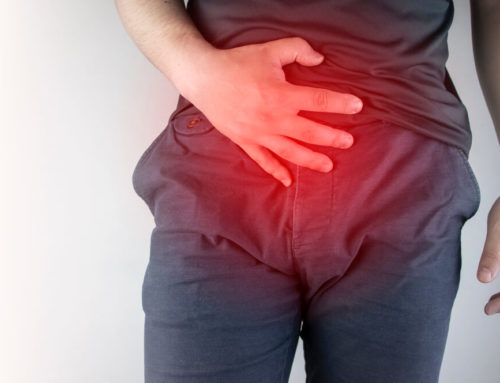While hiatal hernia surgery is the best way to heal from severe cases of this condition, milder cases may be treated at home. In this article, we’ll go through the top ways how to fix a hiatal hernia yourself, when you should consult a professional, and what to do if the at-home methods aren’t working.
But before trying to heal it by yourself, we always suggest reaching out to a trained professional like Dr. Andrew Shapiro. This way, you’ll receive the best expert treatment tailored to your needs.
With this in mind, let’s see the at-home alternatives to hiatal hernia surgery, what life after hiatal hernia surgery looks like, and symptoms such as weight loss after hiatal hernia surgery.
What Does Hiatal Hernia Refer To?
Before discussing reversing hiatal hernia, let’s see what this condition is. In short, a hiatal hernia happens when your stomach’s upper part bulges through the large muscle that separates your chest or diaphragm and abdomen. Typically, patients with mild cases of hiatal hernia don’t have to worry about serious complications. In fact, it’s common that patients don’t even know that they have this condition unless a professional discovers it during a checkup.
On the flip side, patients with severe cases may need hiatal hernia surgery. This is because a large hiatal hernia may lead to heartburn, vomiting, abdominal and chest pain, and difficulty swallowing.
Common Symptoms of Hiatal Hernia

Before understanding how to fix a hiatal hernia yourself, consider the following side-effects of this condition. As mentioned, a small hiatal hernia is usually harmless. However, a large one can easily lead to the following:
- Shortness of breath
- Abdominal and chest pain
- Difficulty swallowing
- Regurgitation of liquids and foods in the mouth
- Vomiting of blood
- Passing of black stools
- Feeling full quickly after eating
- Acid reflux
- Heartburn
How to Fix a Hiatal Hernia Yourself?
Hiatal hernia surgery is typically not required if you have a milder case of this condition. Besides addressing gastric acid secretion, you can also try healing yourself at home. Here are some of the top recommendations on how to fix a hiatal hernia yourself:
- Decreasing your food portion sizes
- Eating until you are satisfied, not full
- Losing weight if necessary
- Eating small portions of food throughout the day, several times a day
- Limiting or eliminating foods such as fatty foods, fried foods, acidic foods (such as vinegar, citrus, and tomato), caffeine (chocolate, coffee, energy drinks), spicy foods, carbonated drinks, alcohol
- Stop smoking
- Elevating you’re bed’s head by 8 inches
- Avoiding tight belts, body shapers, or any piece of clothing that is “too tight” and that creates abdominal pressure
- Considering over-the-counter medications such as H-blockers or antacids
If you are overweight, losing excess fat is one of the best things you can do when it comes to reversing hiatal hernia. Exercising is a great way to lose unwanted weight, get into shape, and heal this condition. However, if you are experiencing symptoms such as acid reflux, some exercises, such as those that require you to push yourself, may exacerbate these symptoms. Some of the safest forms of exercise involve jogging, cycling, walking, swimming, and gentle yoga. Exercises that strengthen your diaphragm are also recommended.
When Should I Consult a Healthcare Specialist?
Typically, reversing hiatal hernia is possible at home. However, some cases may require professional treatment. If you experience any or all of the following, reach out to a professional immediately:
- You feel nauseated
- You have persistent chest pain
- You are unable to empty your bowels or pass gas
- You experience vomiting
Hiatal Hernia Surgery: What to Expect
You may require hiatal hernia surgery if you are experiencing:
- Severe symptoms that are interfering with your life quality
- If your symptoms are not getting better
- If you experience bleeding and ulcers
There are three types of hiatal hernia surgery. These include Nissen fundoplication, endoluminal fundoplication, and open repairs.
The most common is the Nissen fundoplication or the “keyhole surgery.” This type of surgery is relatively simple, minimally invasive, and straightforward. The healthcare professional will make tiny incisions in your abdomen, after which they will insert a laparoscope (a tube with a camera and a light). The doctor will repair the hernia and possibly tighten your stomach opening to reduce the chances of the condition recurring.
Some advantages of this type of surgery include:
- Quicker hiatal hernia surgery recovery
- It’s less painful
- There’s less risk of infection
- Scarring is minimal
Endoluminal fundoplication is also a minimally invasive procedure but rarely used. The doctor will place an endoscope down your throat directly into the food pipe during this procedure. Endoluminal fundoplication doesn’t involve incisions. On the downside, doctors don’t prefer this procedure because the endoluminal devices are not completely reliable, and many patients may have reoccurring symptoms.
Hiatal Hernia Surgery Recovery Facts
If you experience laparoscopic surgery, you may feel discomfort in recovery. For example, some patients report feeling pain in the chest and abdomen and difficulty swallowing. Luckily, these side effects go away within 48 hours.
When it comes to hiatal hernia surgery recovery, you can expect to go home the same day. Of course, this is only if you had a laparoscopy and fully recovered from the anesthesia. Otherwise, patients may need to stay in the hospital overnight. You can expect to feel better fast.
During your hiatal hernia surgery recovery, doctors will recommend you to:
- Take showers instead of baths and avoid hot tubs and pools
- Wash your incision area with mild soap and clean water
- Walk to get some exercise
- Practice special coughing and breathing exercises to improve diaphragm strength
Is Weight Loss After Hiatal Hernia Surgery Normal?

Yes, weight loss after hiatal hernia surgery is relatively common. This is because your body is focused on the recovery process instead of eating. Moreover, some patients may also experience a loss of appetite post-surgery, leading to weight loss.
Nevertheless, the weight loss after hiatal hernia surgery may only be temporary, and if you go back to old eating patterns, you can regain the weight. Of course, make sure to eat a wholesome, balanced diet, exercise, and implement healthier lifestyle choices. Otherwise, your hiatal hernia can come back.
Life After Hiatal Hernia Surgery
Hiatal hernia surgery can be overwhelming, but it doesn’t have to be. The good news is that you can typically go back to your everyday life within six weeks. However, many experts claim that life after hiatal hernia surgery can entirely go back to normal after three months. The key is patience. You will likely need to make lifestyle adjustments to make sure you remain healthy. Overall, your life after hiatal hernia surgery will almost be the same as before, with a few “healthy” tweaks here and there.
Book an Appointment Today
Hiatal hernia can be daunting. On the bright side, our team of experts will help answer all of your questions and concerns. If you’re looking for the best treatment, schedule an appointment with us today.







